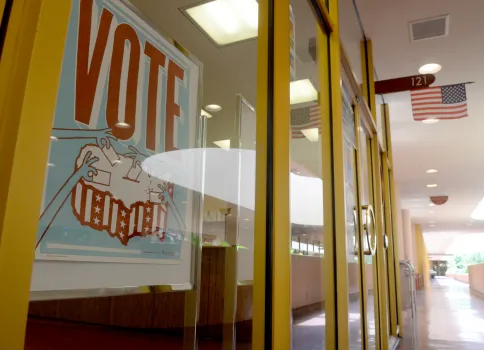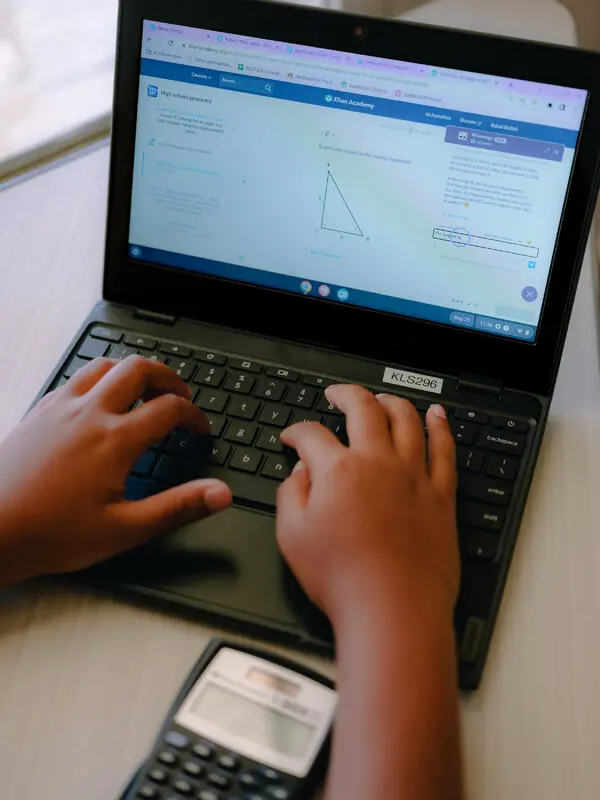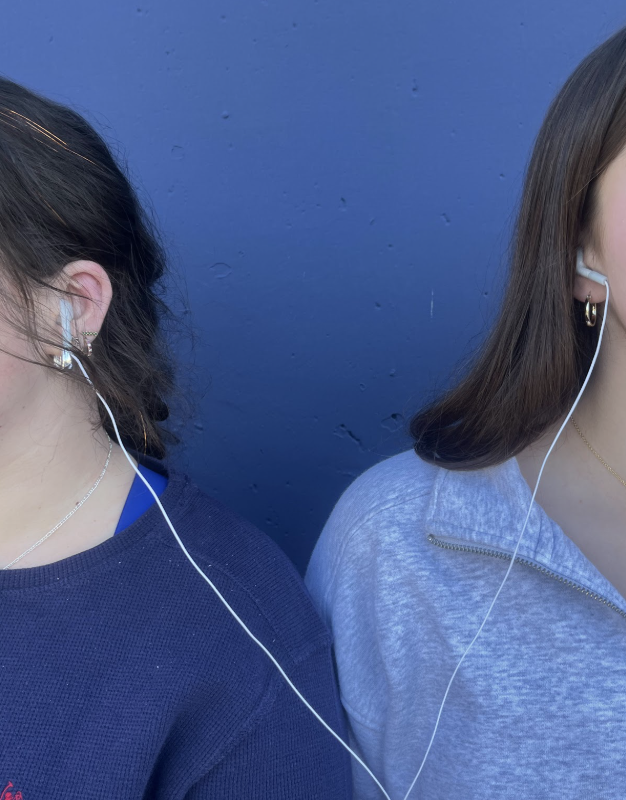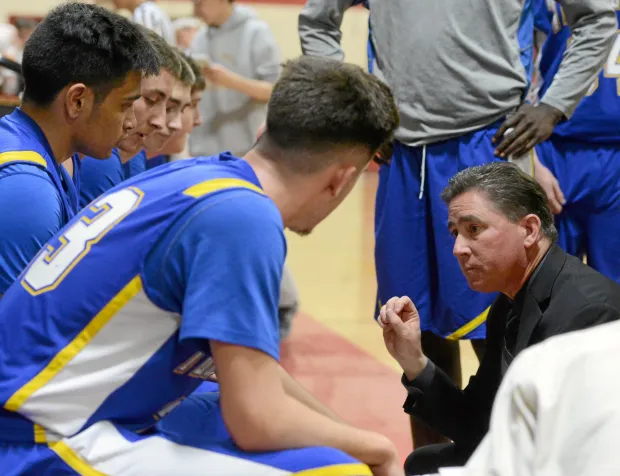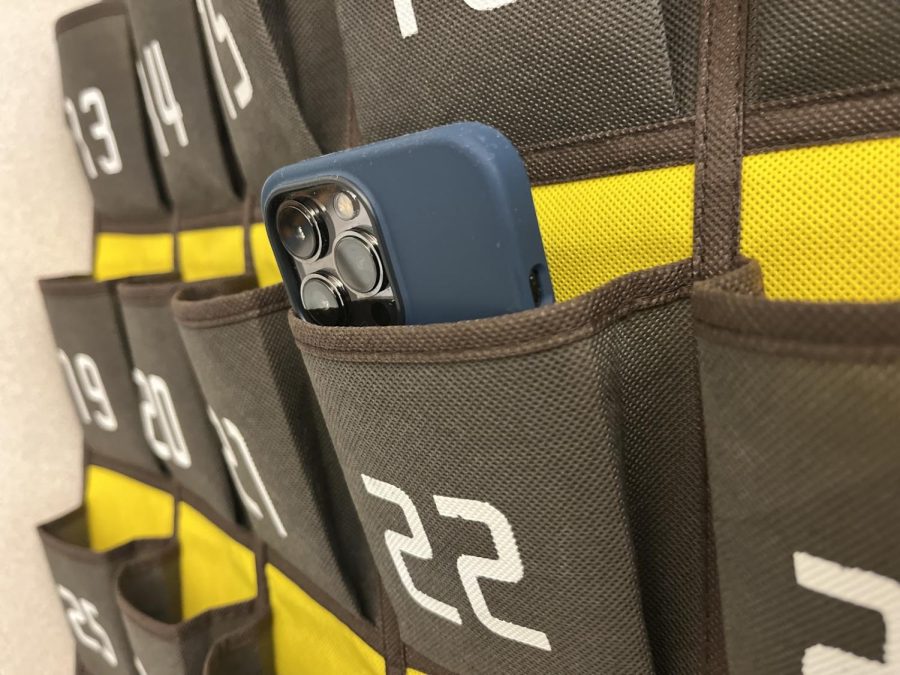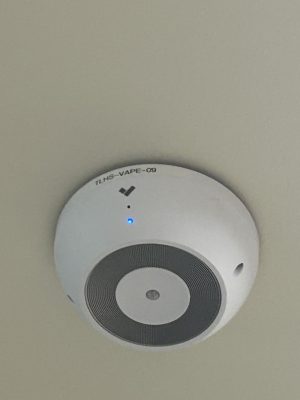The Phone Pouch Feud
January 31, 2022
97% of Americans own a cell phone, according to a survey by PEW Research. They allow us to easily connect to people all around the world, plus offer all kinds of other entertainment such as games, music, and social media. Of course, there can always be too much of a good thing. Phone addiction has been observed as far back as 2005, before touchscreen phones were even a thing. Some of the earliest smartphones, Blackberries, were even nicknamed “crackberries” due to how addictive they were. With our far more advanced technology, it stands to reason that this addictiveness has increased.
Consequently, schools have begun placing pockets, boxes, or shelves for students to place their phones in during class. At TL, whether or not this is mandatory is up to the individual teacher. Due to this, policies tend to vary from class to class, from allowing students to simply use their phones whenever the teacher isn’t lecturing, all the way to making the whole class place their phones near the door when class begins.
Spanish teacher Mr. Teakle is one teacher who employs the latter method. He said that phones are a “great distraction,” and that the “entire class” can become distracted by just one person on their phone. Despite this rule, Teakle said that he does, on occasion, find students on their phone during class, though he did note that “most students are respectful,” and do not surreptitiously browse their device.
Ms. Marweg, a math and computer science teacher, takes a slightly different approach. She requires her sophomore and freshman level classes to place their phones in the pouches at the start of class, but does not apply said rules to her classes composed of juniors and seniors due to the fact that she feels the older students are of a “different maturity level.”
Both teachers have similar responses to a student being on their device during class. The basic idea is giving a couple warnings, then confiscation if necessary. They do differ in some ways, however. Ms. Marweg will adjust her response depending on how far into the semester it is, giving less leeway the further along they are. Mr. Teakle uses an interesting approach in that when he confiscates a phone, he tells the individual student that he will take the phone down to the office. However, at the end of class will instead have a talk with the student in order to get them to “understand that it was an error, a mistake,” and return their phone.
A poll of TL students regarding their positions on phone policy. The majority of respondents were in favor of students keeping their phones on their person during class, with various arguments being made in support of this position. Students also generally supported phones being taken away should a student actually be caught on their phone during class when they shouldn’t be.
The most common argument from the students was that we, being almost adults ourselves, are for the most part “responsible” enough to stay off our phones. And, if we do choose to use them, it is our own personal responsibility if our grades fall. Both Mr. Teakle and Ms. Marweg, when confronted with this argument, expressed that it was also the teacher’s responsibility to ensure that students learn to pay attention in class. She stated that otherwise, “[students] may not gain that skill.” She also said that instructing students on behavior, along with instructing students on academics, was part of the job of being a teacher.
Another common argument was that there is a risk of cell phones being stolen while they are in the pockets. One student even alleged that it has “happened twice already.” Neither teacher could corroborate this claim, both saying that it was unlikely for placing phones into the pockets to increase the chances of phones being stolen beyond a harmless prank.
A small minority of students made the argument that, upon putting their phone away, students would become so transfixed on getting it back that they would be unable to pay attention during class. Ms. Marweg thought that this argument actually works against those students who made it, as it proves that they probably spend a bit too much time on their phones.
Though the teachers both admitted that they can see where students are coming from, both seemed to be quite firm that at the very least some classes needed to put their phones away. As it stands, Terra Linda allows each teacher to decide whether or not to use either phone pockets as well as to what degree, this flexibility might be the best option as long as phones retain their role as primarily entertainment-based devices.







